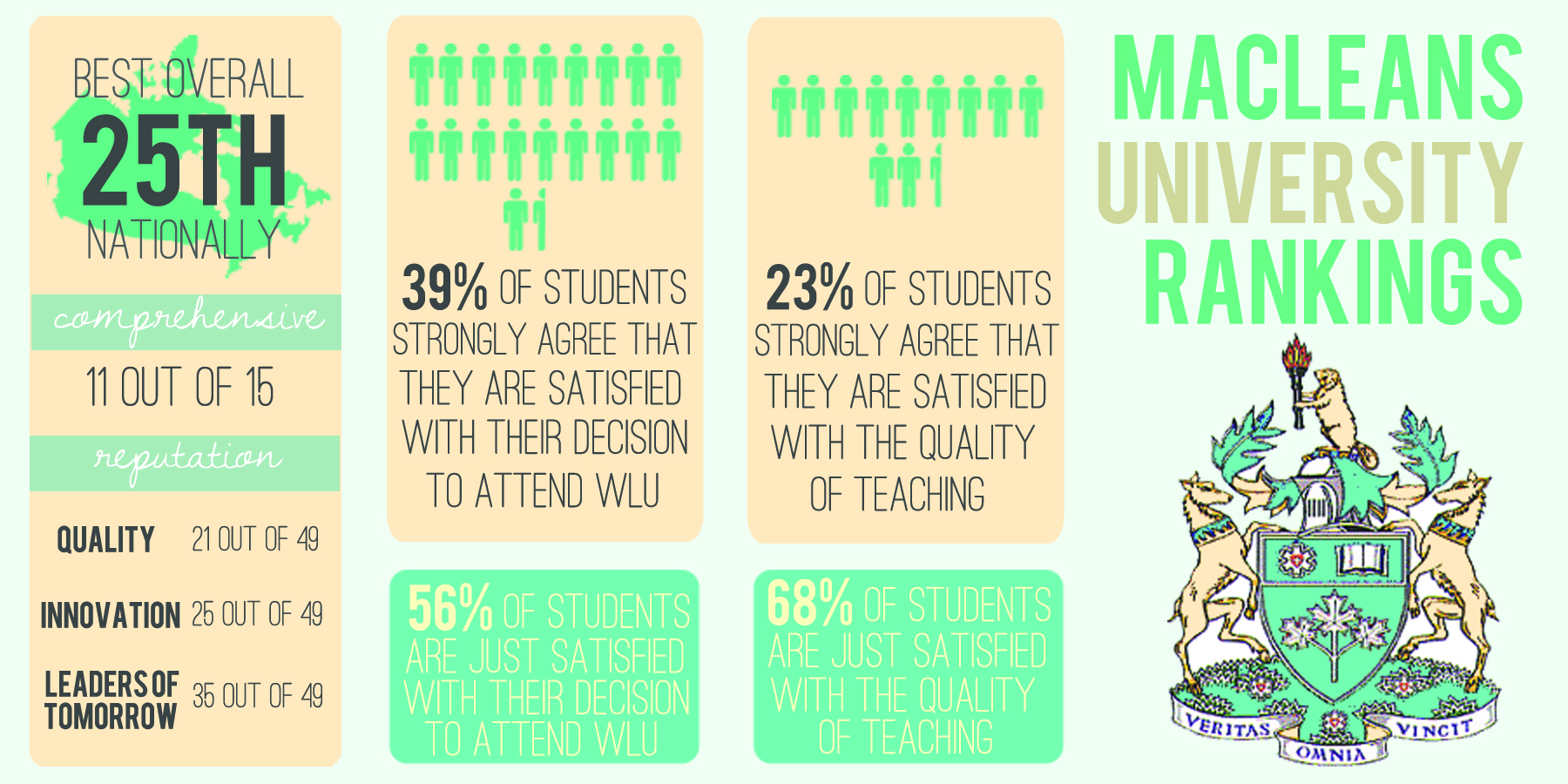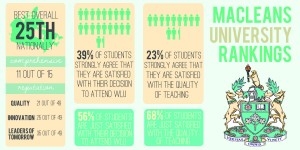Annual report puts Laurier to the test


After MacLean’s released its annual university rankings, Wilfrid Laurier University found itself placing 25th overall of the national reputation ranking.
However, in most other rankings, MacLean’s placed universities into one of three categories that displayed the differences in levels of research funding, the diversity of offerings and the breadth and depth of graduate and professional programs.
Within the comprehensive category, Laurier placed 11th out of 15 schools.
“I think I’m happy,” said Deb MacLatchy, vice president: academic and provost at Laurier, when asked about the results.
Laurier was moved just last year into the comprehensive category, which, as described by MacLean’s, features universities that have a significant degree of research activity and a wide range of programs at the undergraduate and graduate levels, including professional degrees.
MacLatchy expressed that since, “we just moved into the comprehensive category, [and] the fact that we stayed the same in most of the categories and moved up in some of them, I think that is a reasonable outcome.”
Laurier was originally, until last year, placed in the primarily undergraduate category.
“I do think [moving to the comprehensive category] is a good thing. I do think it is very important, it represents that we’ve grown as a university,” MacLatchy continued.
While it is nearly impossible to expect a university to move significantly higher in the span of one year in their category, and achieving the top spot is something every school aims to do, MacLatchy believes that Laurier should still be proud of its results.
“It shows the commitment of the institution to research, high quality of teaching, student satisfaction,” said Mercedes Rowinsky-Geurts, the associate dean of students: student affairs and special projects.
“We are proving that we are competitive and that we are moving forward on different levels and we are holding our own,” Rowinsky-Geurts added.
The rankings are important for incoming students and parents who are looking to choose the best school to attend.
While current students may not be in tune with the results, it is still important to address them since it could ignite a sense of accomplishment for their university.
When asked about how she feels about the results, fourth-year history student Mallory Herold stated that she “definitely thought the best overall” results were fair.
She also enjoyed the “leaders of tomorrow,” ranking which placed Laurier in fourth place for comprehensive schools in Ontario, and 35 out of 49 schools nationally.
“There are so many leadership opportunities for volunteers [at Laurier],” continued Herold.
As well, Rowinsky was proud of the placement in the “leaders of tomorrow” category.
“‘Leaders of tomorrow’, goes with the ethos of the university, ‘inspiring lives of leadership and purpose,’ and here were are, among the best,” she said.
MacLatchy also stated that the rankings are valuable to international students, who lack the knowledge that Canadian students have regarding their universities.
“Certainly internationally, students and parents can be very focused on rankings, so sometimes it means more for us internationally than it does nationally,” MacLatchy added.
Being neighbours with the University of Waterloo, one of the leading universities in the comprehensive category from the MacLean’s ranking, only benefits Laurier in terms of recognition.
While MacLatchy expressed that “a little competition is good,” it’s difficult to do so since both universities in Waterloo differ in what they offer.
“There are a lot of exceptional benefits we get from having two universities [in the city],” continued MacLatchy.
Laurier’s other national reputational rankings were 21st for highest quality and 25th for most innovative. In the provincial and comprehensive comparison, Laurier placed third for highest quality and fourth for most innovative.
While the rankings may not be ideal and still fall behind some categories, MacLatchy maintained they are reputable.
“I think everybody likes to do well,” she concluded.



